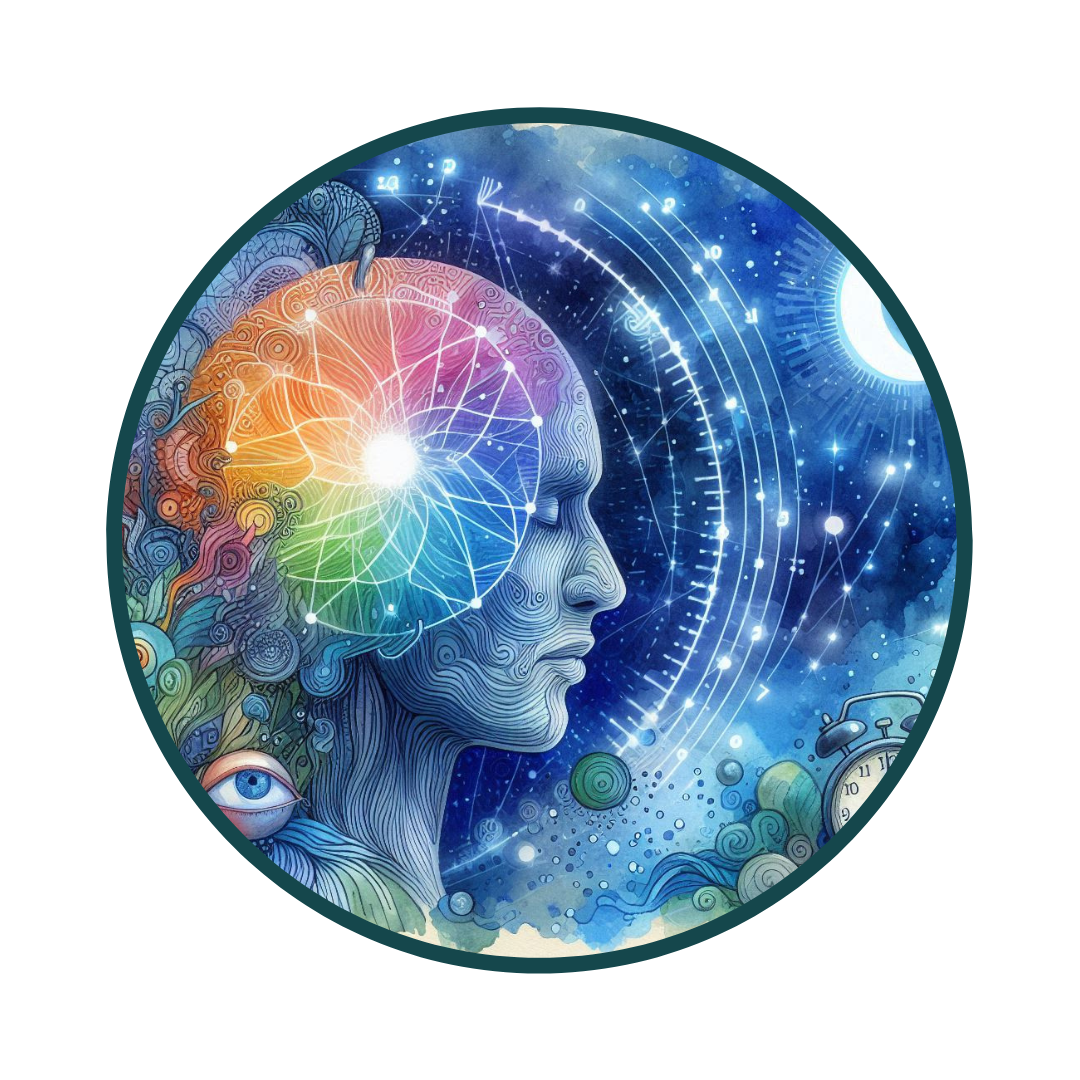Our bodies are controlled by a daily cycle, called the circadian rhythm, sometimes called a "body clock." The hypothalamus is the part of the brain that governs our circadian rhythm. Some aspects of this body clock are controlled by external factors, like light and temperature. Others are controlled by internal hormonal processes. Our body clock controls when we are most alert, when we are tired, when we are hungry, and many other body functions. When we travel from one time zone to another, and the sun rises earlier or later in the day, our bodies may struggle to adjust to changes in our environment, resulting in what we commonly call "jet lag." The shift to and from daylight savings time takes a toll on everyone twice a year, and people who do shift work often find more trouble keeping their mind and body in rhythm than people who follow a more regular schedule. In the absence of daylight cycles (like in a mine or cave), the body still seems to operate on a roughly 24-hour cycle for weeks at a time; but international flight attendants and others subjected to rapidly changing daylight cycles can be severely affected.
Scientists have known for a long time that diet, exercise, and daylight all play a significant role in our circadian rhythms. Sunny days make us happy; exercise makes us sleep more soundly; a regular and nutritious diet positively affects mood, energy levels, and good sleep cycles. Poor sleep ruins our focus and mood, causes us to consume more empty calories, and gives us lower energy levels to exercise and burn calories, resulting in weight gain.
However, in recent years, scientists have been learning that light in the blue spectrum controls many aspects of our circadian rhythm. Since daylight is largely in the blue spectrum, this isn't surprising. Blue light photoreceptors in your eyes keep your body clock in sync with the natural solar rhythms of daylight and darkness. Blue light causes the body to stop making melatonin, an essential hormone for sleep, while increasing serotonin and cortisol, which enhance focus and energy. Red light (like at sunset) plays a much smaller role in regulating our body clocks.
In recent years, more and more TV, computer, and phone screens are using LED backlighting, which is much brighter in the blue spectrum than most previous sources of artificial light. Many ordinary household light bulbs we use after dark are also LED. A laptop screen (such as the one I am using now) delivers many times the blue light level of a full moon, and can seriously disrupt your circadian rhythm. Add to that the cortisol stress response of a fast-paced computer action game or an intense drama on your TV screen, and your body biologically isn't prepped for a good night's sleep anytime soon. Later, shorter, and less relaxing sleep can, in turn, negatively affect your health in both short- and long-term ways.
What can you do to keep your body clock in proper time with the sun? First, make sure you expose yourself to natural blue light early in the day. Open the curtains and let the sun in to start your day right! Make sure you get some good exposure to daylight during the day. If you work in a warehouse or other environment without natural light, make sure you take a few minutes to get outdoors.
After dark, make sure to limit your screen time, and pay attention to the size and brightness of the screens you are using. Use dark backgrounds and light text where possible, and use brown or red hues for text, as opposed to white. Many phones have a "night mode" option that will shift color schemes after a certain time, and many laptops and desktops also have this option. "Blue Blocker" eyeglasses are affordable and can also reduce the blue spectrum that reaches your eyes. Limit TV time before bed, and keep nightlights to a minimum.
Getting in touch with the natural world can begin in some effortless ways. Most of us would probably benefit from a more natural lifestyle, including more natural light during the day and more natural darkness at night. This can give us better sleep, better moods, more energy, better focus, and stronger immune systems. And who doesn't want all that?

About the Author

|
Matt Warnock, our Herbal Head Honcho (AKA our owner), has been leading Ridgecrest with passion and vision since 2000. As a second-generation owner, Matt is a generous leader who inspires and drives our team forward. He describes himself as a thinker, reader, writer, outdoorsman, and problem solver. He is a passionate activist, currently writing a book and actively advocating for herbal freedom. Learn more about his inspiring work here. Matt’s favorite herb is Ephedra Nevadensis, and he proudly recommends our ClearLungs® Immune, SinusClear®, and DreamOn™ Zen products.
Learn more about our team here. |
Check out these related blogs:
- Get Some Sleep
- Preparing Your Body for Sleep
- 6 Benefits of Sleeping in a Cold Room
- ASMR
- Lucid Dreaming
- Dream Pillows
- Using Technology For Health
- How Daylight Savings Affects Health
- The Pros & Cons of Caffeine
- Social Media Self Care
- A Calming Guided Meditation
Check out these related products:

|
DreamOn™ Zen is a melatonin-free, natural sleep aid that supports the next-morning mood with Chamomile, Passionflower, Valerian, Lavender, Magnesium, and 5-HTP. These ingredients support a healthy circadian rhythm without sedation and add to a sleep hygiene routine. Wake up feeling rested to skip the pre-coffee grumps. |
 |
EssentialEyes® provides full-spectrum support for overall eye health with lutein and zeaxanthin from Lutemax 20/20®, Eyebright, and Bilberry. It helps nutritionally support eyes exposed to blue light from screens, healthy low-light vision, and optimal ocular function. Lutemax 20/20 contains the essential daily amounts of lutein, zeaxanthin, and meso-zeaxanthin needed to maintain healthy macular pigment levels. |



